All content on this site is intended for healthcare professionals only. By acknowledging this message and accessing the information on this website you are confirming that you are a Healthcare Professional. If you are a patient or carer, please visit the Lymphoma Coalition.
The Lymphoma Hub uses cookies on this website. They help us give you the best online experience. By continuing to use our website without changing your cookie settings, you agree to our use of cookies in accordance with our updated Cookie Policy
Introducing

Now you can personalise
your Lymphoma Hub experience!
Bookmark content to read later
Select your specific areas of interest
View content recommended for you
Find out moreThe Lymphoma Hub website uses a third-party service provided by Google that dynamically translates web content. Translations are machine generated, so may not be an exact or complete translation, and the Lymphoma Hub cannot guarantee the accuracy of translated content. The Lymphoma Hub and its employees will not be liable for any direct, indirect, or consequential damages (even if foreseeable) resulting from use of the Google Translate feature. For further support with Google Translate, visit Google Translate Help.
iwCLL 2017 | Clonal Chronic Lymphocytic Leukemia mutations can occur extremely early in the hematopoietic lineage
Bookmark this article
The second session at this year’s iwCLL was titled “Role of Non-Leukemic Cells and the Microenvironment in CLL Development”, and was jointly chaired by Silvia Deaglio (University of Turin, Torino, Italy) and Christopher Pepper (Cardiff University, Wales, UK).
Sonia Marsilio, PhD, from the Weill Cornell Medical College, New York, USA, gave a talk titled “CLL Mutations in the Earliest Cells of the Hematopoietic Lineage: Documentation and Need for Caution.”
The group aimed to analyze the genomes of immature members of the hematopoietic lineage, while preventing contamination from mature CLL cells and controlling for deep sequencing noise.
FACS was used to isolate cell populations containing Hematopoietic Stem Cells (HSCs), Multi-Potent Progenitor (MPP) cells, downstream Hematopoietic Progenitor Cell (HPC) populations, and mature T-cells and monocytes from granulocyte-colony stimulating factor mobilized peripheral blood of 9 patients. CLL cells were also identified and subjected to Whole Exome Sequencing (WES).
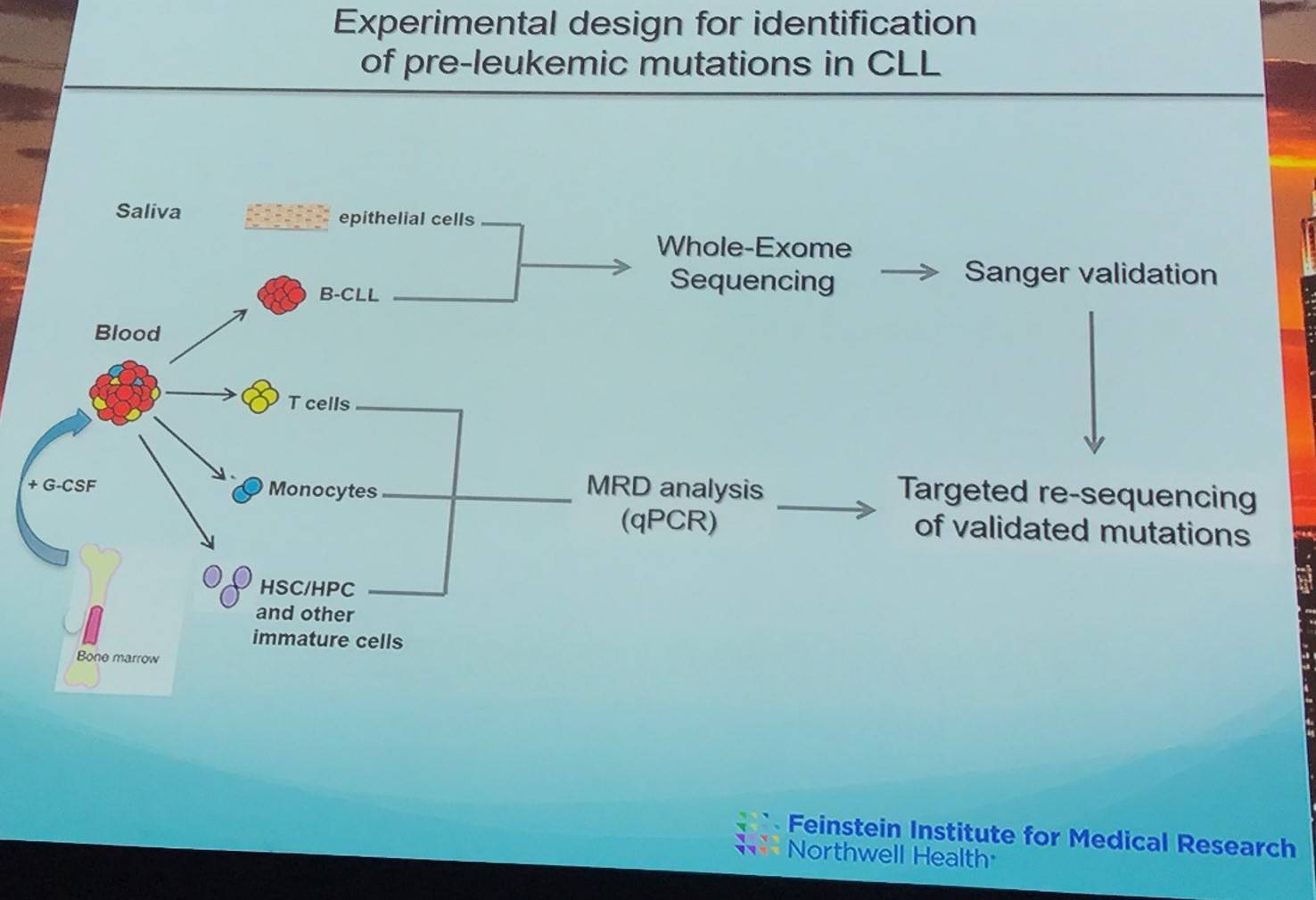
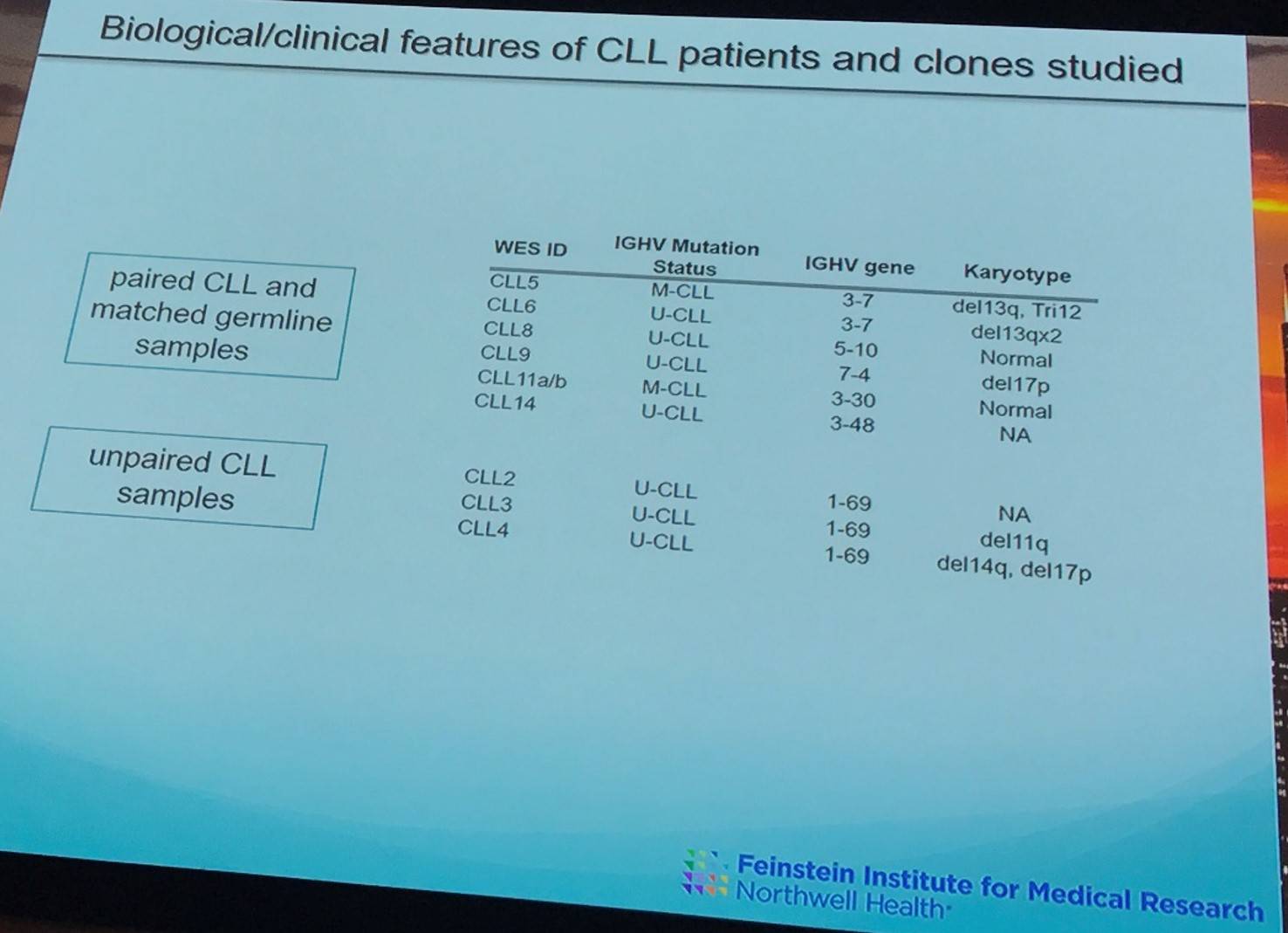
In 6 paired CLL samples, 87 coding mutation were identified (average = 14.5 mutations per sample) and went on to be validated by Sanger sequencing.
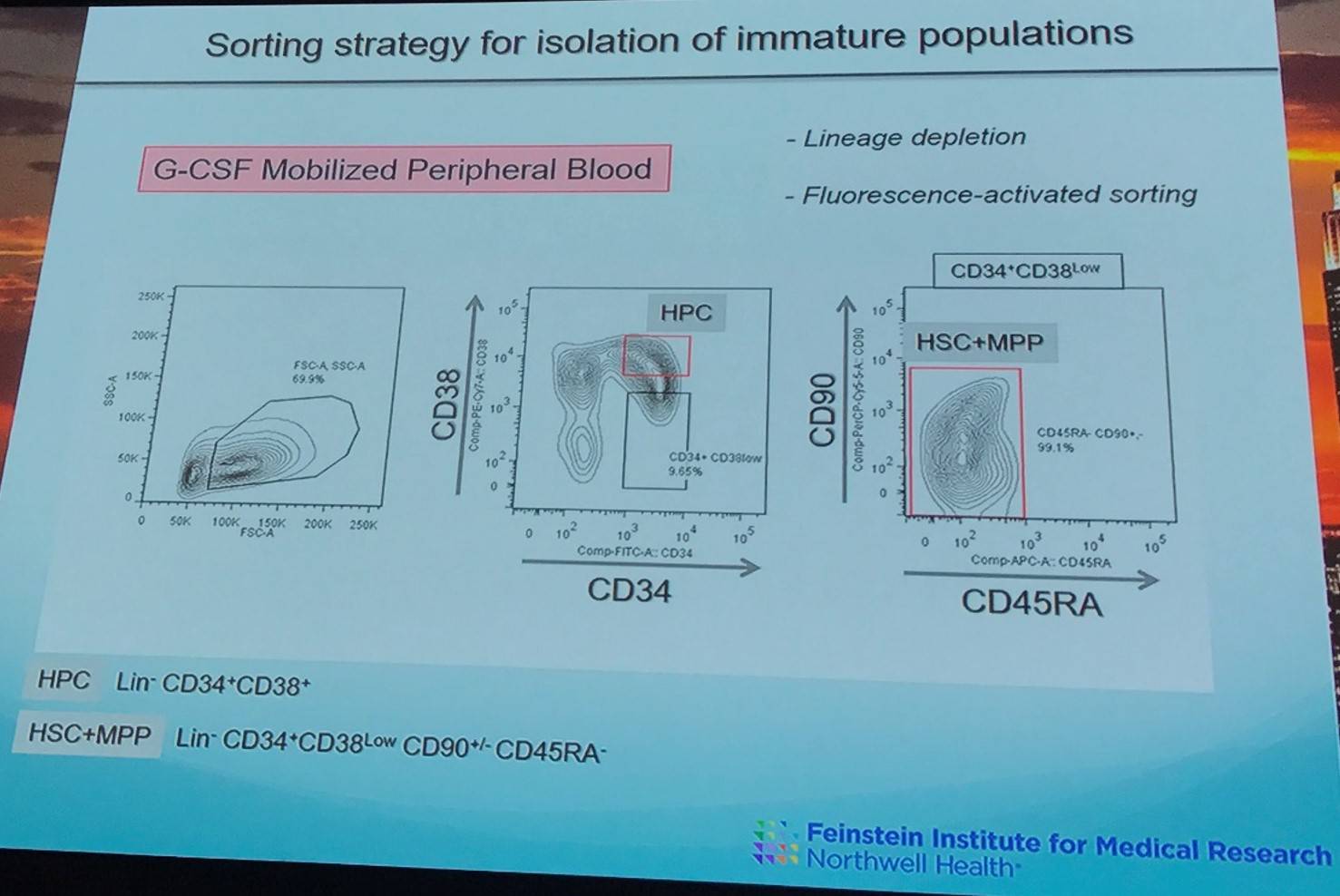
Using the MRD method defined by van der Velden et al. in Leukemia in 2007, 9 pure samples were identified (0.01–0.04% of B-CLL cells = 11; 0.05–1.4% B-CLL cells = 9).
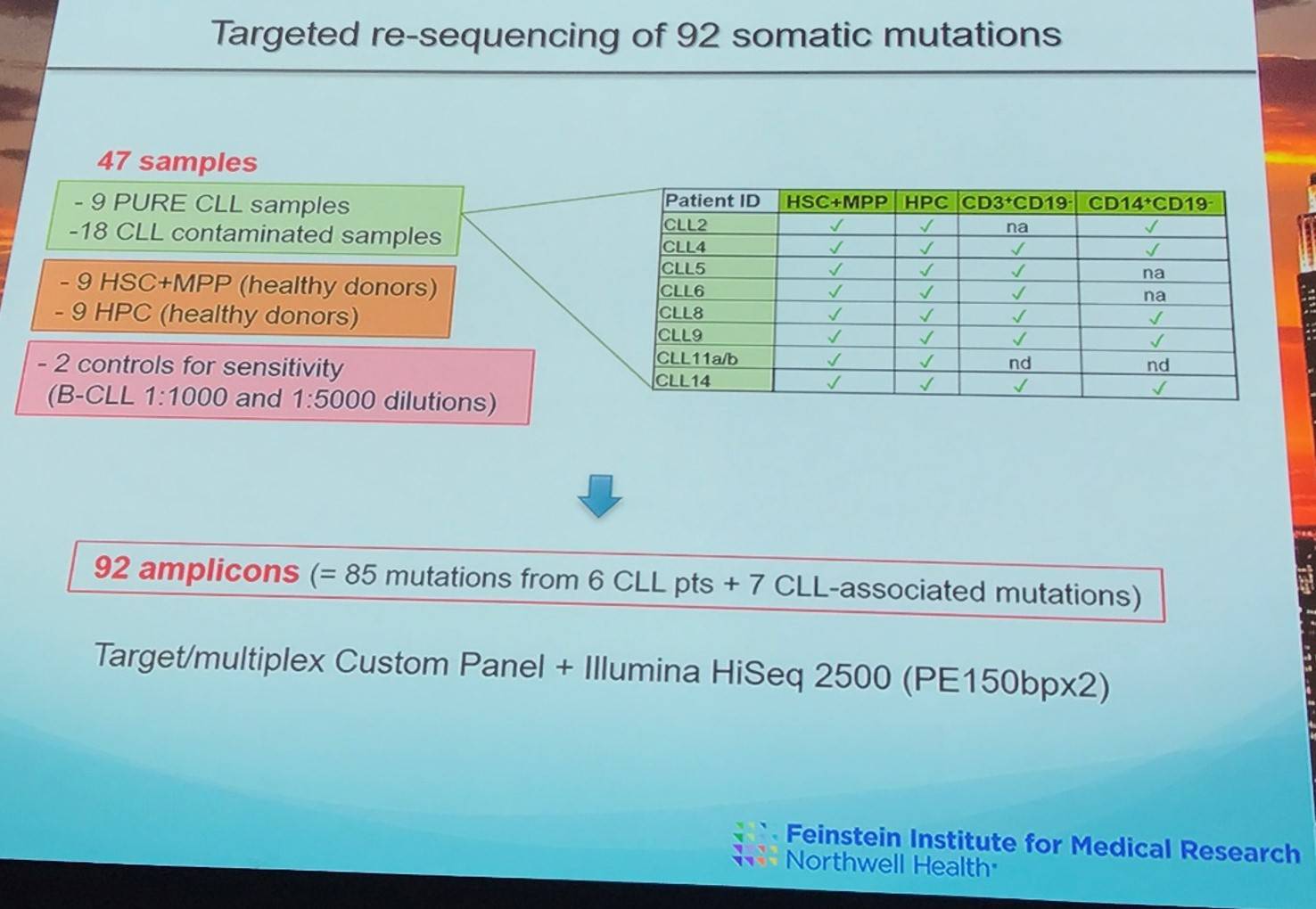
In one patient, an SF3B1-K700E mutation was present in the HSC+MPP fraction (VAF >0.15%) as well as in CLL B-cells (VAF >0.15%) of the patient in mutually exclusive clones. The SF3B1-I704F mutation was only identified in later stages of hematopoietic differentiation (CLL B-cells, VAF = 47%).
However, in some cases HSC+MPP and HPC fractions defined as “pure” by MRD analysis potentially were still contaminated with CLL B-cells.
|
Pt ID |
HSC+MPP |
HPC |
T-Cells |
Monocytes |
Level of mutation |
|
|---|---|---|---|---|---|---|
|
CLL5 |
PURE |
- |
|
NA |
HSC+MPP |
50% of WES defined mutations |
|
CLL11 |
- |
PURE |
- |
- |
HPC |
93% of WES defined mutations |
Sonia Marsilio concluded her presentation with a succinct summary slide:
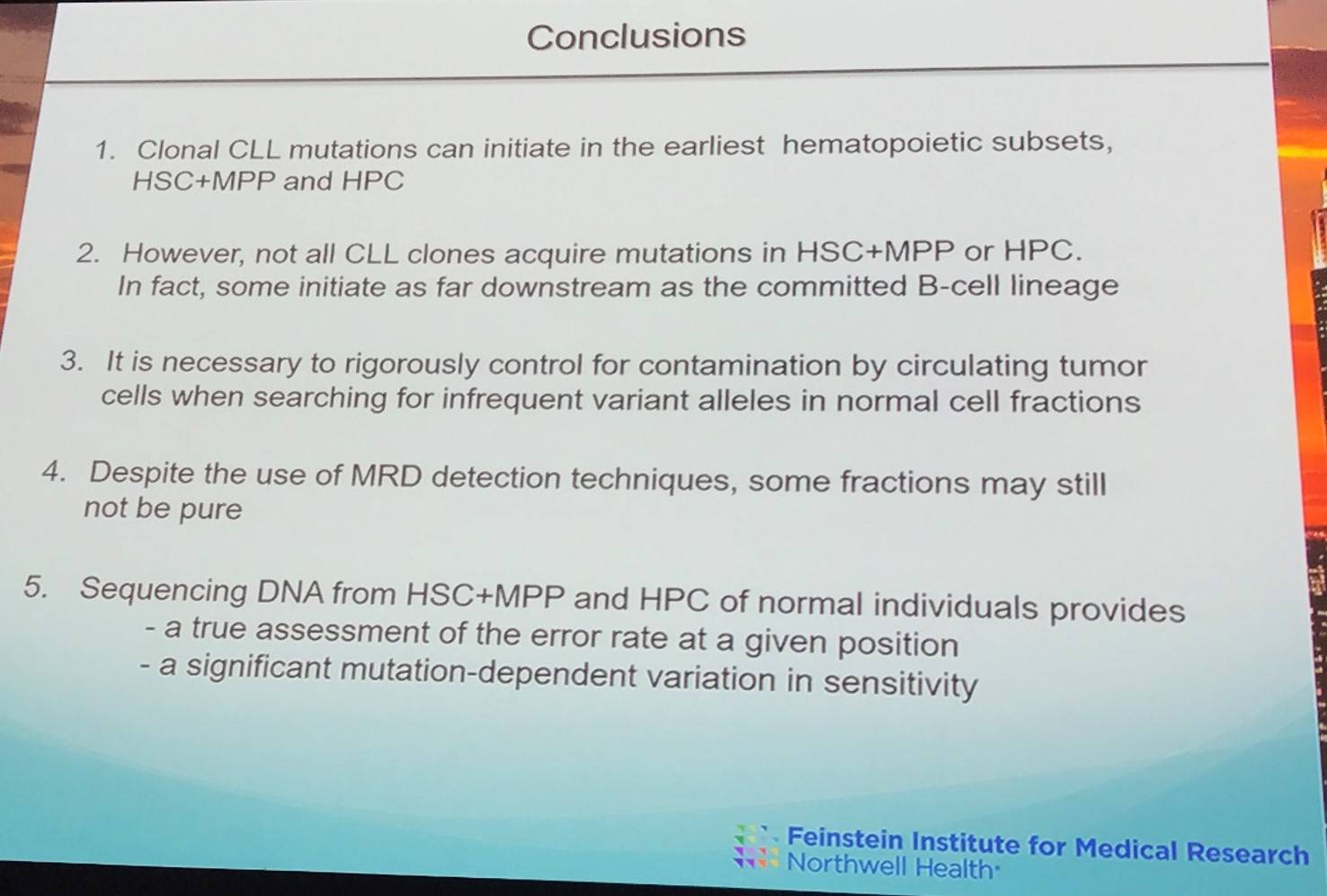
- Marsilio S. CLL Mutations in the Earliest Cells of the Hematopoietic Lineage: Documentation and Need for Caution. XVII International Workshop on Chronic Lymphocytic Leukemia; 2017 May 12–15; New York, USA.

Understanding your specialty helps us to deliver the most relevant and engaging content.
Please spare a moment to share yours.
Please select or type your specialty
 Thank you
Thank youRelated articles
Newsletter
Subscribe to get the best content related to lymphoma & CLL delivered to your inbox








